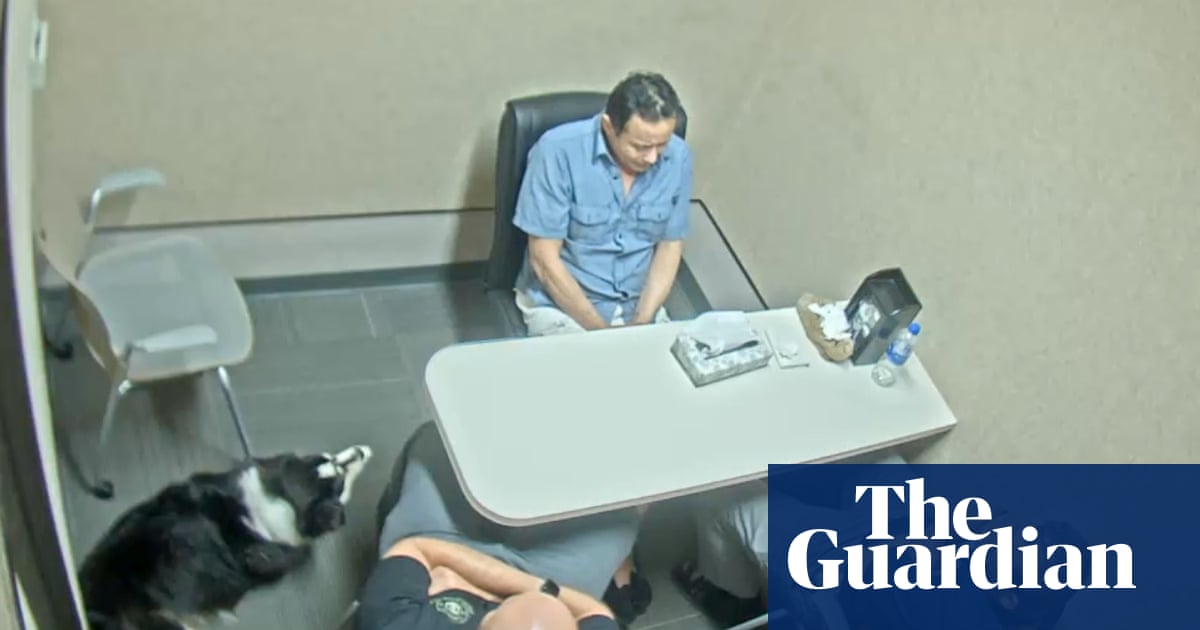A California city has agreed to pay $900,000 to a man who was subjected to a 17-hour police interrogation in which officers pressured him to falsely confess to murdering his father, who was alive.
During the 2018 interrogation of Thomas Perez Jr by police in Fontana, a city east of Los Angeles, officers suggested they would have Perez’s dog euthanized as a result of his actions, according to a complaint and footage of the encounter. A judge said the questioning appeared to be “unconstitutional psychological torture”, and the city agreed to settle Perez’s lawsuit for $898,000, his lawyer announced this week.
The extraordinary case of a coerced false confession has sparked widespread outrage, with footage showing Perez in extreme emotional and physical distress, including as officers brought his dog in and said the animal would need to be put down due to “depression” from witnessing a murder that had not actually occurred.



Wait, that doesn’t count as income and get taxed does it? I always assumed a court order payment wouldn’t be taxed because it’s only being awarded to make you “whole”. You don’t pay taxes on the money you get from your insurance when your car gets totaled, why would court ordered restitution be any different?
deleted by creator
God we suck as a nation.
I didn’t have to pay tax on the small claims court case I won. Other cities/states might be different.
I agree it shouldn’t. At the end of the day that money has already been taxed once. It should go to the person as if it was already theirs, because it’s making up for something that should have been theirs.